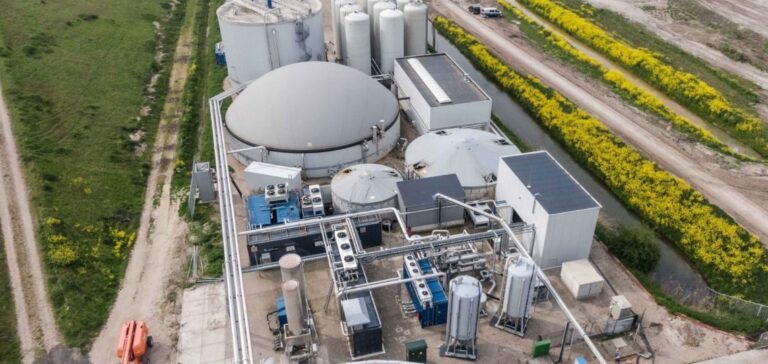Bio-LNG (biological liquefied natural gas) is gradually emerging as a promising solution for Europe’s energy transition. Usable with existing LNG infrastructures, this biofuel plays a crucial role in reducing carbon emissions, particularly in the transport and marine sectors. With theEuropean Union aiming for carbon neutrality by 2050, companies are actively exploring the potential of Bio-LNG to achieve these ambitious European energy transition targets.
Advantages and challenges of Bio-LNG
The appeal of Bio-LNG lies in its ability to significantly reduce greenhouse gas (GHG) emissions. Under the EU’s Renewable Energy Directive (RED 3), biofuels must account for 42.5% of the energy market, with a sub-target of 29% for transport. GHG savings for Bio-LNG range from 89% to 200%, making its adoption economically viable compared with traditional fossil fuels.
Nevertheless, Bio-LNG production is still under development. The sector faces significant challenges, including the cost of production and the adaptation of existing bio-methane infrastructures. Producers also need to balance subsidies and incentives to switch from grid-injected bio-methane to Bio-LNG.
Growth in the Transportation Market
The European transport sector is preparing for a significant increase in demand for Bio-LNG. The Natural Gas Vehicle Association (NGVA Europe) predicts that 400,000 trucks could be powered by LNG by 2030, compared with just 2,000 today. This expansion is essential to reduce carbon emissions in a sector where low-emission alternatives are limited.
The European Commission is stepping up its energy targets for 2030, requiring hard-to-decarbonize sectors such as shipping and heavy road transport to switch to cleaner fuels. Bio-LNG offers an immediate and practical solution for reducing CO2 emissions, especially as the cost of emissions rises under the EU Emissions Trading Scheme (ETS).
Production prospects and future developments
The number of Bio-LNG production plants in Europe is growing rapidly. At the end of 2022, there were 27 active plants, a figure set to rise to 42 by 2024 and over 109 by 2025. Combined generation capacity is expected to reach 15.4 TWh/year by the end of 2025.
At the same time, the fleet of LNG/Bio-LNG trucks and refueling stations is growing. Italy, the European leader in this field, uses all the biomethane it produces as transport fuel, backed by a favorable legislative framework and a robust support scheme. Shell, for example, plans to add 2,000 LNG-fueled trucks in Europe and offer a Bio-LNG blend to its customers in the Netherlands and Germany by the first quarter of 2024.
Bio-LNG represents a significant step towards a low-carbon Europe. With growing production and adoption, this biofuel actively supports the EU’s ambitious environmental objectives. As environmental regulations tighten, the use of Bio-LNG will become not only a viable option, but also a necessary one for companies seeking to reduce their emissions costs and remain competitive.






















